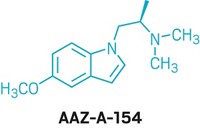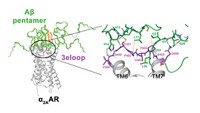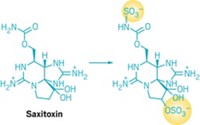Advertisement
Grab your lab coat. Let's get started
Welcome!
Welcome!
Create an account below to get 6 C&EN articles per month, receive newsletters and more - all free.
It seems this is your first time logging in online. Please enter the following information to continue.
As an ACS member you automatically get access to this site. All we need is few more details to create your reading experience.
Not you? Sign in with a different account.
Not you? Sign in with a different account.
ERROR 1
ERROR 1
ERROR 2
ERROR 2
ERROR 2
ERROR 2
ERROR 2
Password and Confirm password must match.
If you have an ACS member number, please enter it here so we can link this account to your membership. (optional)
ERROR 2
ACS values your privacy. By submitting your information, you are gaining access to C&EN and subscribing to our weekly newsletter. We use the information you provide to make your reading experience better, and we will never sell your data to third party members.
Biological Chemistry
Greater Selectivity Refines Treatment Of Cognitive Disorders
Experimental compound targets specific receptor class involved in Alzheimer's disease
by Sophie L. Rovner
August 31, 2009
| A version of this story appeared in
Volume 87, Issue 35
Alzheimer’s disease destroys memory by degrading neurons that pass signals with the help of the neurotransmitter acetylcholine. Current treatments compensate by increasing acetylcholine levels in the brain, but these drugs offer only modest benefits. They also cause side effects because the extra neurotransmitter activates some classes of acetylcholine receptors that aren’t involved in cognition. Now, researchers at Merck Research Laboratories in West Point, Pa., have identified a compound that selectively boosts the activity of the specific acetylcholine receptor—known as M1—that’s associated with cognition. William J. Ray and colleagues zeroed in on the compound, benzyl quinolone carboxylic acid (BQCA), by screening more than 1 million substances (Proc. Natl. Acad. Sci. USA, DOI: 10.1073/pnas.0900903106). The researchers showed that this orally active compound improves memory in mice. They also found that BQCA is an allosteric modulator that alters the M1 receptor’s conformation, thereby reducing the amount of acetylcholine necessary to activate it. Allosteric modulation represents a promising therapeutic strategy for Alzheimer’s and other cognitive disorders, Ray notes.





Join the conversation
Contact the reporter
Submit a Letter to the Editor for publication
Engage with us on Twitter